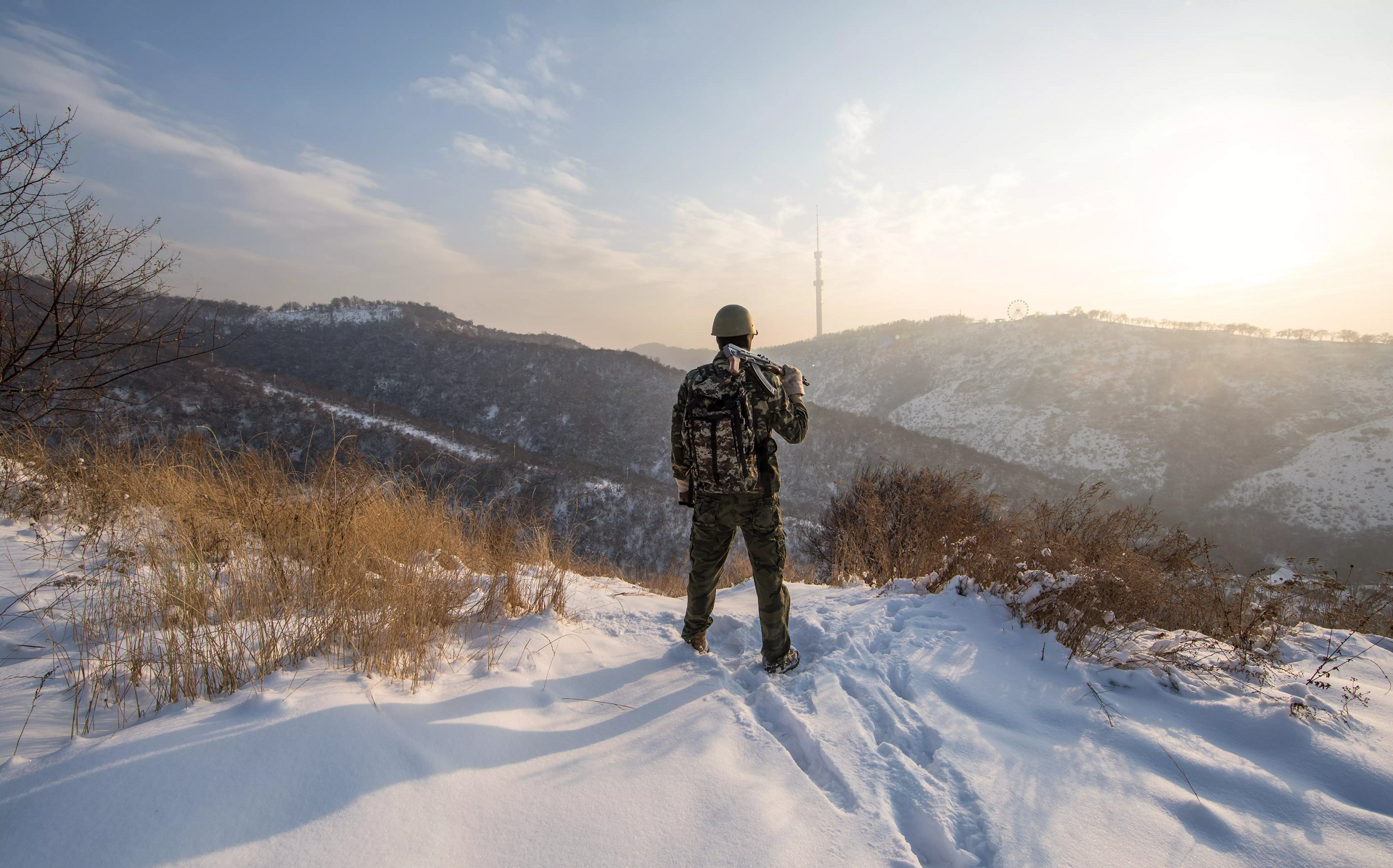Negative effects of isolation
Veterans and those individuals employed in the Armed Services are certainly not alone in experiencing the negative effects of isolation throughout lockdown on their mental health. In fact, researchers in a flash study have found that there’s been a spike in the number of people who are reporting significant levels of anxiety and depression since the beginning of lockdown. Sadly, but unsurprisingly, a total of 36% of people said that their anxiety levels were significant and a total of 38% of people reported significant depression.

This impact was felt immediately as the research reporting these statistics above took place only one day after the Prime Minister at the time, Boris Johnson, announced the nation wide lockdown. By way of comparison, prior to the announcement of lockdown or even the emergence of COVID-19 in the years from 2018 to 2019, only 19.8% reported their anxiety levels as being high. Sadly in 2019 alone there were 10.3 million instances of poor mental health in the UK which includes both anxiety and depression. Among all health conditions, depression alone was the third highest ranking cause of disability, showing that even prior to the pandemic mental health problems, and especially depression, was affecting the lives of millions of people across the UK. These statistics allow us to make a direct comparison with the general mental state of the UK population directly following the announcement of the lockdown back in 2020. Accordingly, when the differing levels from prior to the announcement of lockdown was compared to the same research the day after the announcement of the lockdown, there was actually an increase of more than 137% in levels of depression and a huge increase of 111% in reported levels of anxiety.
In light of this it’s very clear that the lockdown has had a real effect on the general population, but there’s very little doubt that this impact will be more significantly felt by veterans in particular. For veterans who now have an established second career following their service in the British Armed Forces, the time that they’ve had away from the workplace could have given them more of an opportunity to reflect on the extremely traumatic experiences that they have been through in addition to them considering the impact of these past experiences on both themselves and their families.
Mental Health Issues and Consequences
Sadly, for some, this may be a time where mental health issues are brought into focus. This could include using alcohol or illicit substances as a crutch to cope with anxiety, depression, problems with anger management and marital strain. Some may even turn to other addictions, such as gambling as a way to escape the extreme mental anguish that they are facing during such a difficult and isolating time for so many.
Another issue which only serves to add to this mental health crisis for the entire population of the UK, including veterans and those in the Armed Forces, is the current cost of living crisis which is only predicted to worsen in the future. The Office of National Statistics (ONS) conducted a survey of this very issue from the period starting from 29 September 2022 to 23 October 2022 which included individuals living in Great Britain who were aged 16 years old or above.
The results of their survey make for dim reading with 84% of respondents reporting either no or mild symptoms of depression during this time period and 16% of respondents reporting either moderate or severe symptoms. Given the short period of time this survey was conducted over, it is somewhat concerning to see figures of this magnitude. However, when compared to the years during which lockdowns were prevalent due to the impact of the COVID-19 pandemic, a small decrease has been noted more recently with figures spiking throughout 2020 and 2021.
This shows that it would appear that the COVID-19 pandemic remains a key source of depression for many, with research published by the JAMA Network Open predicting that increased levels of mental health problems are likely to continue for some time, even though all restrictions related to the pandemic have now been lifted.
The same research found that the number of people suffering from high levels of anxiety and depression increased by more than a third during the pandemic causing a mental health crisis. In particular, these levels increased over the second lockdown when compared with the increase in figures found during the first lockdown imposed on the general UK population.
Kishan Patel, the Lead Researcher involved at the University College London commented on this crisis, saying:
“We found a sustained decrease in mental health. There was a lot of talk that lifting lockdown measures would automatically return people back to normal, but our results suggest that wasn’t the case at all.”
“Given the sustained deterioration of mental health during the pandemic, I would think that it would still be sustained now [after the study period ended] and into the future. As long as the pandemic exists, I would say it’s highly likely that high psychological stress will continue”
Charities campaigning for improved awareness of mental health issues have welcomed the research but state that more has to be done to help those individuals affected recover from the effects of the pandemic.
Jess D’Cruz from Mind (the Mental Health Charity) stated that:
“The study was, sadly, unsurprising.”
“Many of us have found the pandemic very difficult to cope with for different reasons – including fears about getting sick, feelings of loneliness during lockdowns, concerns about finances and uncertainty about the future”
“Recent estimates suggest that there are 1.6 million people waiting for mental health treatment and another 8 million who could benefit from mental health services but aren’t deemed unwell enough to be eligible to access them.”

Additionally, it is important to recognise that types of problems associated with the effects of anxiety and depression, such as increased alcohol consumption or gambling, may be red flags for a more serious underlying mental health condition, such as Post Traumatic Stress Disorder (PTSD) – especially for those who are or were in the Armed Forces.
Treatment options
Thankfully, medical treatment should be readily available for any service personnel or veterans who decide or think that they may need it.
For those currently in active service, the unit medical centre should be able to help by giving them an assessment and possible treatment with the appropriate forces mental health medical professionals.
Veterans and anyone approaching discharge from the armed forces can contact the Transition, Intervention and Liaison Mental Health Service through the NHS website which can be found here or by calling 0808 802 8080.
Additionally there are many charities such as Walking with the Wounded, and Combat Stress, both of which have had many years of experience of both assessing and facilitating various different treatment options for veterans who have been affected by any kind of mental health condition either during or following their employment in the armed forces
If any veterans feel that they have experienced a historic injury which was not managed appropriately by medics in the armed forces and their Chain of Command, they may have taken the time during lockdown as an opportunity to consider whether they would be interested in taking any legal advice on making a potential military claim for compensation in relation to this and the impact that this has sadly had on them and their lives.
Our expert team of Military Lawyers can offer many years of expertise in this area. You can be rest assured that we are able to offer a no obligation initial consultation completely free of charge, so talk to one of our experienced Military Claims Solicitors.
COVID-19 Support Force
It should give us all comfort to hear news of the involvement of our inspirational Armed Forces to help the country through the unprecedented challenge it faces.
Previously, the COVID Support Force was involved in projects including helping the NHS convert the Excel Exhibition Centre into a 4,000 bed hospital, supplying food and other supplies to the elderly, transporting personal protective equipment to hospitals in addition to approximately 250 Armed Forces personnel undertaking training to drive oxygen tankers for the NHS.
In addition to this, the Ministry of defence have also confirmed that there are up to 20,000 personnel waiting on standby who are more than ready to help with the management of the crisis in any way they can.





